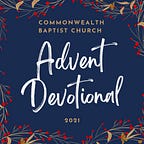Hope? What do I know of hope?
Marcia Call
Isaiah 12:2–6
Amos 8:4–12
2 Corinthians 9:1–15
I am mailing this devotion to Pastors Robin and Marty two weeks after the deadline to which I agreed. This seems to be emblematic of my life right now, a life that is filled with uncertainty. I am deeply worried that the life I love is going up in flames and I am powerless to do, let alone fix, one single part of it.
Sure, let’s talk about hope.
When I read my three passages — a psalm, a sentence fragment from Micah and several verses from Luke — they struck me as having nothing to do with hope. Nada. Re-imagining their words for today’s times and casting them as a passionate 3-character dialogue, the scene would read like this:
People: God, it’s really bad in the world right now — so much death and dying, so many evictions and bread lines, so much hate and violence. When will it end? Please help. (Psalm 79)
First Oracle of the Lord: Help will come from the least among you but not before you have suffered much at the hands of forces bigger than yourselves. (Micah 5: 1–5a)
Second Oracle of the Lord: You must prepare yourselves. Stay awake. Don’t give up. Don’t sink into depravity. Pray that you may have the strength to remain holy before you face the Lord. (Luke: 21:34–38)
There is not one shred of hope, or hope as I think of it, in these verses. Read them for yourselves. No hearts. No flowers. No rainbows. Most importantly, no certainty of a happy ending. Maybe that’s because the biblical view of hope isn’t a Hallmark Christmas movie.
Let’s confront the history. Micah is writing as the Assyrians are about to take the Northern Kingdom in the 8th century. The psalmist is writing as Jerusalem is being taken in the late 6th century. Finally, the Luke passage occurs before Jesus’ crucifixion. These are not happy rehearsal dinner toasts. These are passages filled with foreboding and bone-crushing fear in the face of threats that are unimaginable and in which many of the good will not survive. We know how all three of these stories end.
What if these writers are not speaking of hope but the conditions that lead to hope? That hope shows up when we are at the end of our rope.
In a column written by Richard Rohr, he introduced me to a meditation by Etty Hillesum, a young Jewish woman who suffered in the Nazi concentrations camps. Hillesum writes, “There is a really deep well inside me. And in it dwells God. Sometimes I am there, too . . . And that is all we can manage these days and all that really matters: that we safeguard that little piece of you, God, in ourselves.”
Hillesum’s situation is desperate and yet she refuses to succumb. She isn’t hoping for a happy ending or denying how hard or awful the situation is. Instead, she seems to be cultivating one happy place and choosing to dwell there in the midst of the horror. She is making a choice to guard that place to which God has invited her, a small bonfire in her soul from which she can launch many small thoughts and acts of kindness and love, mini acts of worship.
My situation is not anything like that of Hillesum, but at the same time, I feel like our times are desperate and hopeless. When will it end? I can’t answer that question. I can’t guarantee myself or anyone else a happy ending. But I can choose to love in the midst of the despair around us . . . one backyard fire pit at a time. That is where I find hope.
